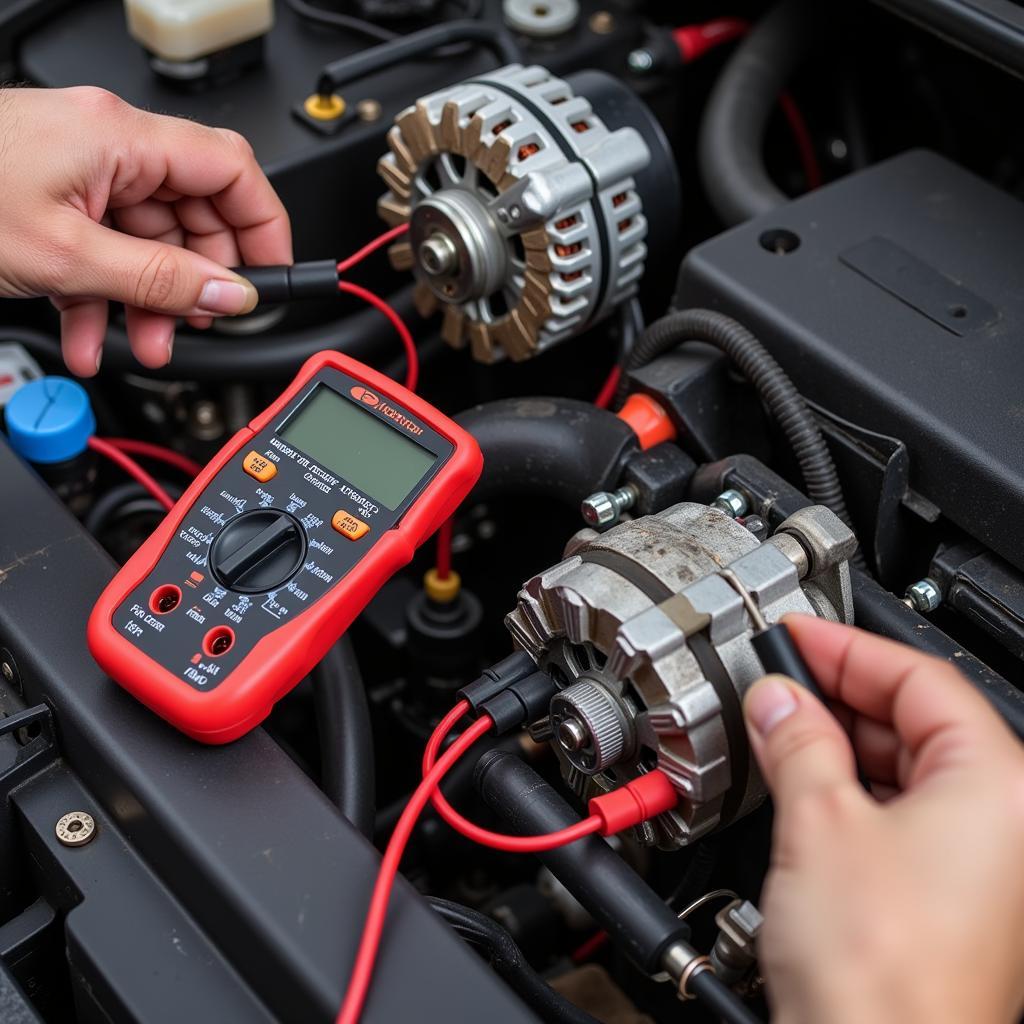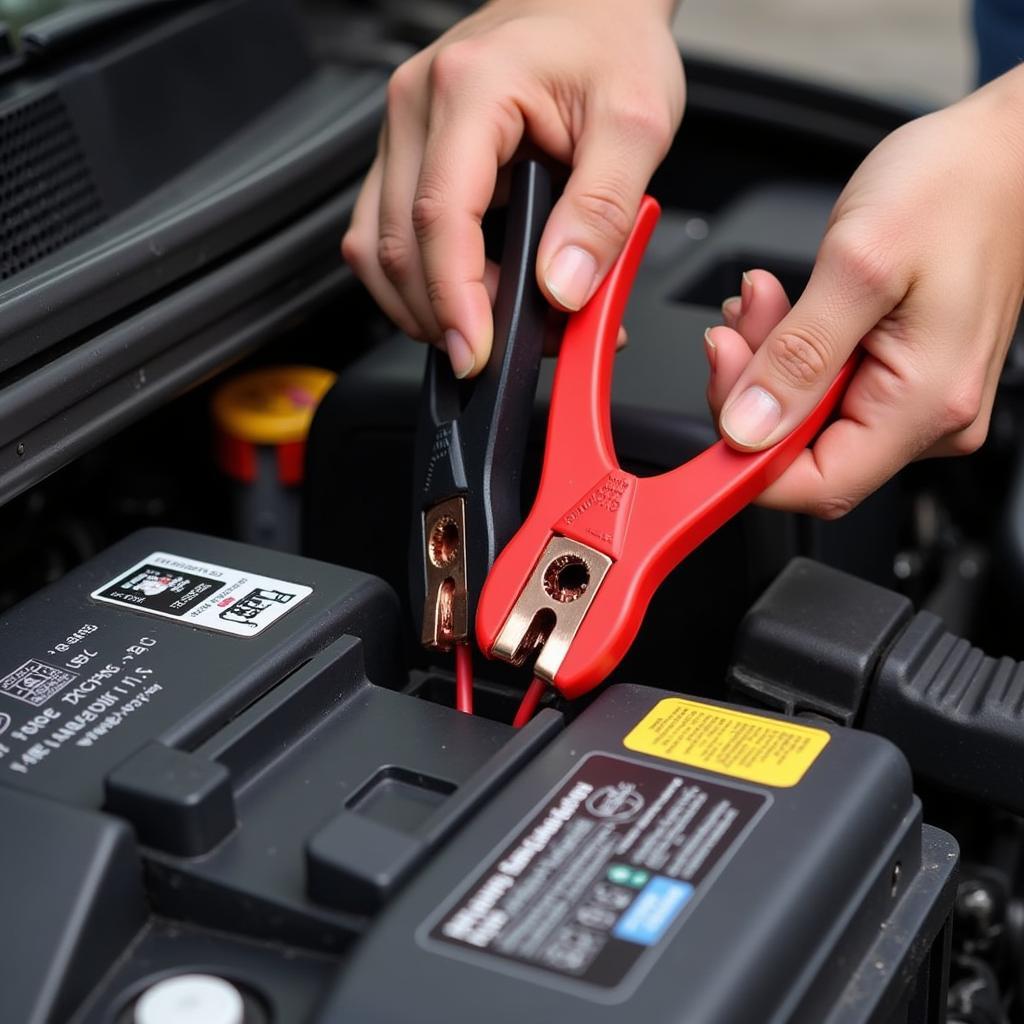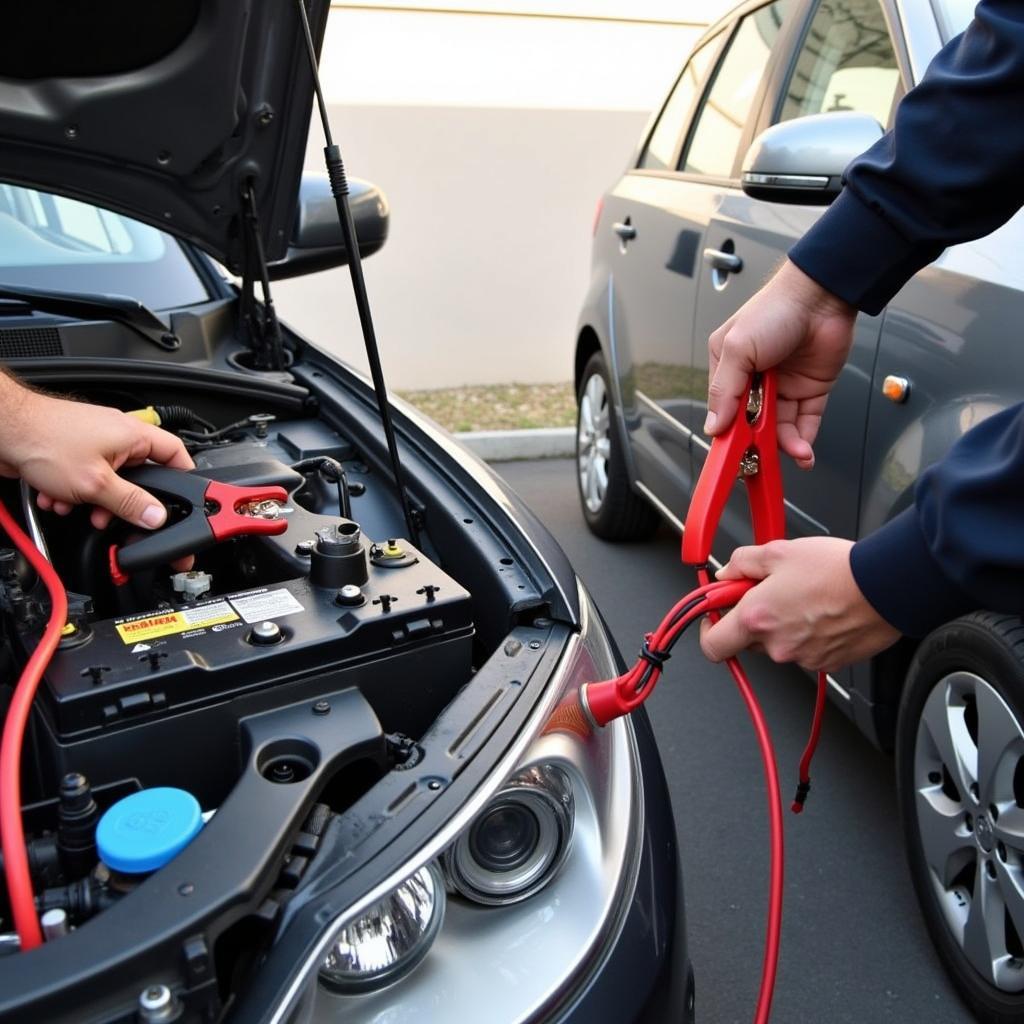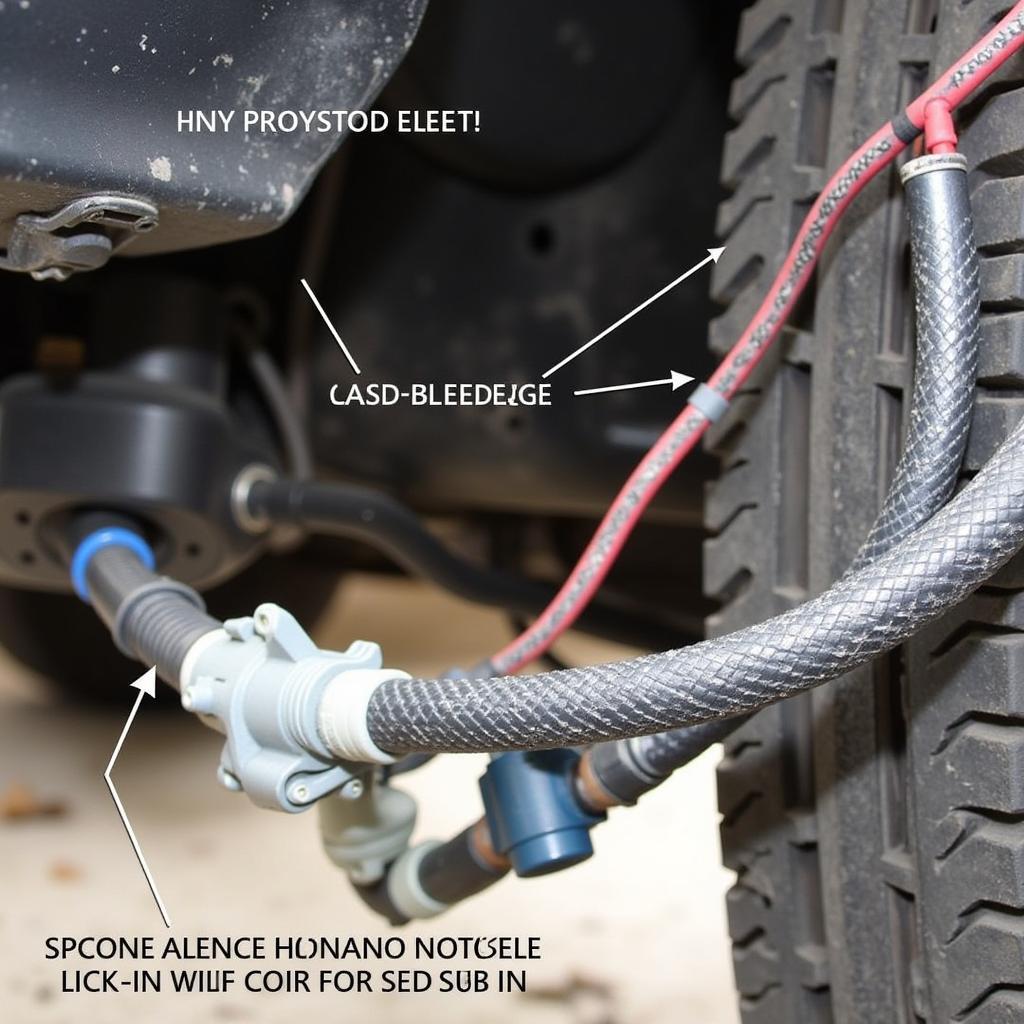A car battery overheating while charging is a serious issue that can lead to damage, reduced lifespan, and even dangerous situations. Understanding why your car battery gets hot when charging, and knowing how to address the problem, is crucial for maintaining your vehicle’s health and safety. This guide will walk you through the common causes, troubleshooting steps, and preventive measures to keep your battery cool and functioning optimally.
Why Does My Car Battery Get Hot When Charging?
Several factors can contribute to a car battery overheating during the charging process. Overcharging is a primary culprit. When a battery receives excessive current for an extended period, it generates excess heat. Faulty voltage regulators, alternators, or chargers can all lead to this condition. Internal battery issues, such as sulfation or damaged cells, also contribute to overheating by increasing internal resistance. Ambient temperature plays a role too, especially in hot climates, where the battery has to work harder to dissipate heat.
Common Causes of Car Battery Overheating
- Overcharging: This occurs when the charging system continues to supply current even after the battery is fully charged.
- Faulty Voltage Regulator: The voltage regulator controls the charging voltage from the alternator. A malfunctioning regulator can cause overcharging.
- Faulty Alternator: A faulty alternator can produce excessive voltage, leading to battery overheating.
- Internal Battery Problems: Damaged cells or sulfation within the battery can increase internal resistance and generate heat during charging.
- High Ambient Temperature: Extreme heat can exacerbate battery overheating, particularly during charging.
Troubleshooting a Hot Car Battery
- Check the Charging System: Start by inspecting the alternator, voltage regulator, and charging cables for any visible damage or loose connections.
- Test the Battery Voltage: Use a multimeter to measure the battery voltage. A reading significantly higher than 14.4 volts suggests overcharging.
- Inspect the Battery: Look for signs of physical damage, bulging, or leaks on the battery case.
- Check the Electrolyte Level: Ensure the electrolyte level is correct. Low electrolyte levels can contribute to overheating. However, only add distilled water if the battery is serviceable and follow the manufacturer’s instructions carefully.
- Load Test the Battery: A load test helps determine the battery’s overall health and capacity.
 Checking the charging system for a car battery overheating
Checking the charging system for a car battery overheating
Preventing Car Battery Overheating
- Regularly Inspect Your Battery: Periodically check your battery for signs of wear and tear, corrosion, and proper connections.
- Ensure Proper Charging: Use a charger that is compatible with your battery type and follow the manufacturer’s charging instructions.
- Monitor the Charging Voltage: Periodically monitor the charging voltage with a multimeter to prevent overcharging.
- Keep the Battery Clean: Clean the battery terminals and connections regularly to remove corrosion, ensuring proper electrical contact.
- Park in Shade When Possible: Parking in the shade helps to reduce the ambient temperature around the battery, especially in hot weather.
“Regular maintenance is key to preventing battery overheating. A simple check of your charging system and battery condition can save you a lot of trouble down the road,” advises John Smith, Senior Automotive Electrical Engineer at AutoTech Solutions.
What to do if your car battery is already overheating?
If your car battery is hot to the touch while charging, immediately disconnect the charger or turn off the engine if the car is running. Allow the battery to cool down completely before attempting to diagnose or address the issue. Do not attempt to jump-start the vehicle if the battery is overheating, as this could be dangerous.
 Disconnecting the charger from an overheating car battery
Disconnecting the charger from an overheating car battery
Conclusion
Car battery overheating while charging is a preventable problem. By understanding the causes, taking preventative measures, and knowing the proper troubleshooting steps, you can ensure the longevity and safety of your car battery. Regular maintenance, coupled with proper charging practices, will help keep your battery cool and functioning optimally. If you encounter persistent overheating issues, it’s crucial to consult a qualified automotive technician for a thorough diagnosis and repair.
“Don’t underestimate the importance of a properly functioning charging system. Overcharging is a common cause of battery failure, and addressing it promptly can save you time, money, and potential hazards,” adds Maria Garcia, Lead Technician at CarCare Diagnostics.
FAQ
-
How hot is too hot for a car battery while charging? If the battery is too hot to comfortably touch, it’s overheating.
-
Can I jump-start a car with an overheated battery? No, attempting to jump-start a car with an overheated battery can be dangerous.
-
How often should I check my car battery? It’s recommended to inspect your car battery at least every six months, or more frequently in extreme weather conditions.
-
What is the lifespan of a car battery? A typical car battery lasts between three to five years.
-
Can a bad alternator cause the battery to overheat? Yes, a faulty alternator can overcharge the battery, leading to overheating.
-
Should I replace my battery if it overheats once? Not necessarily. Troubleshooting the charging system and addressing the underlying cause may resolve the issue.
-
Can a low electrolyte level cause overheating? Yes, insufficient electrolyte levels can contribute to battery overheating.


